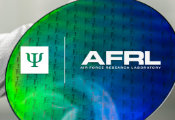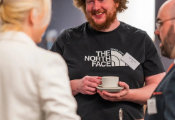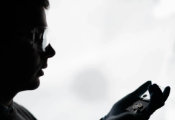New Quantum-Nano Fabrication and Characterization Facility Lab Advances Research and Enhances Community Innovation and Collaboration
New Quantum-Nano Fabrication and Characterization Facility Lab Advances Research and Enhances Community Innovation and Collaboration
The University of Waterloo has officially opened its state-of-the-art Inert Atmosphere Fabrication Lab (IAFL) as part of the Quantum-Nano Fabrication and Characterization Facility (QNFCF).
Uncovering the Nature of Emergent Magnetic Monopoles
Uncovering the Nature of Emergent Magnetic Monopoles
Researchers unveil the dynamical nature of emergent magnetic monopoles in real magnets for the first time.
Sorbonne University Abu Dhabi, Technology Innovation Institute to advance Quantum Science and Technology
Sorbonne University Abu Dhabi, Technology Innovation Institute to advance Quantum Science and Technology
Sorbonne University Abu Dhabi (SUAD) has signed an agreement with the Technology Innovation Institute (TII) to foster research and development in the field of Quantum Science and Technology (QST).
United Nations proclaims 2025 as the International Year of Quantum Science and Technology
United Nations proclaims 2025 as the International Year of Quantum Science and Technology
the UN has proclaimed 2025 as the International Year of Quantum Science and Technology (IYQ). The year-long, worldwide initiative aims to celebrate the contributions of quantum science to technological progress over the past century, raise global awareness of its importance to sustainable development in the 21st century, and ensure that all nations, including Canada, have access to quantum education and opportunities.
Perturbations Simplify the Study of “Super Photons”
Perturbations Simplify the Study of “Super Photons”
A study by the University of Bonn gives novel insight into properties which are often difficult to observe.
Mapping Noise to Improve Quantum Measurements
Mapping Noise to Improve Quantum Measurements
One of the biggest challenges in quantum technology and quantum sensing is “noise”–seemingly random environmental disturbances that can disrupt the delicate quantum states of qubits, the fundamental units of quantum information. Looking deeper at this issue, JILA Associate Fellow and University of Colorado Boulder Physics assistant professor Shuo Sun recently collaborated with Andrés Montoya-Castillo, assistant professor of chemistry (also at CU Boulder), and his team to develop a new method for better understanding and controlling this noise, potentially paving the way for significant advancements in quantum computing, sensing, and control. Their new method, which uses a mathematical technique called a Fourier transform, was published recently in the journal npj Quantum Information.
Enhancing Superconductivity of Graphene-Calcium Superconductors
Enhancing Superconductivity of Graphene-Calcium Superconductors
Researchers experimentally investigate the impact of introducing high-density calcium on the superconductivity of calcium-intercalated bilayer graphene.
Groundbreaking Progress in Quantum Physics: How Quantum Field Theories Decay and Fission
Groundbreaking Progress in Quantum Physics: How Quantum Field Theories Decay and Fission
An international research team around Marcus Sperling, a START award project leader at the Faculty of Physics, University of Vienna, has sparked interest in the scientific community with pioneering results in quantum physics: In their current study, the researchers reinterpret the Higgs mechanism, which gives elementary particles mass and triggers phase transitions, using the concept of "magnetic quivers."
New Achievement in Quantum Physics: New Research Reinterprets the Higgs Mechanism With Simplified Concepts
Researchers from the Physics Department of the University of Vienna, collaborating with international researchers, have achieved a groundbreaking result in quantum physics by reinterpreting the Higgs mechanism, which is a mechanism in the Standard Model that generates mass. In this work, they utilized a graphical research tool called "Magnetic Quivers" to describe how this mechanism gives mass to fundamental particles and triggers phase transitions. The research findings have been published in Physical Review Letters.
QUANTUMWIRE.COM
Gov. Jared Polis Signs Quantum Industry Bill on Campus
Gov. Jared Polis Signs Quantum Industry Bill on Campus
At a ceremony Tuesday, May 28, on the CU Boulder campus, Colorado Gov. Jared Polis ushered in a new bill to support the state’s rapidly growing quantum industry.


























